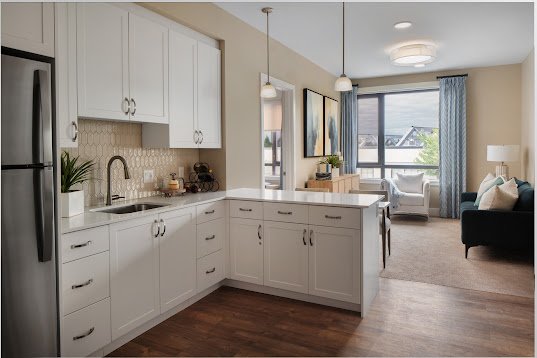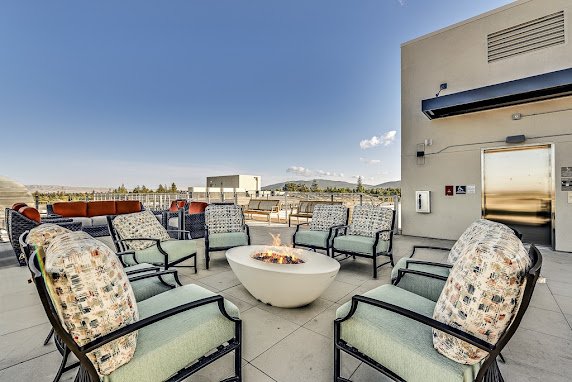If a Spouse would Thrive in Assisted Living, Why Not Consider Joining Them?
If your spouse is in need of the type of services assisted living communities provide, it may make sense for both of you to move into one. Not only does it simplify the problem of not wanting to live apart from one another but it may make good sense for the couple’s well-being and pocket-book especially if they choose to share an apartment.
Senior living like MorningStar of Parker, welcome couples to move-in together even if one of them requires care for the activities of daily living (ADLs) and the other doesn’t. Our four-story building features 54 private assisted living Parker suites in a range of floorplans including spacious studios and one- and two-bedroom configurations as well as 49 suites for independent living.
If a couple chooses to share an apartment, they will pay for the cost of one unit and an additional sharing fee for the second occupant. The Aging.com website explains the assisted living resident typically pays for the additional senior care services they require. For example, one resident needs “assistance with medication management, bathing, and dressing, but their partner is still able to do everything independently. They’ll only pay for the first partner’s care services and any other add-ons they both want.
As a resident, you will enjoy all-day restaurant-style dining services and a bistro/pub, rooftop dining deck, outdoor patio, and raised garden beds for avid gardeners who wish to continue their passion. Resident parking and complimentary scheduled transportation makes getting out and about easy. Our contemporary suites have 10’ ceilings, lots of windows, and kitchenettes with a breakfast bar, granite surfaces and stainless-steel fridge & microwave. Community amenities feature an indoor pool & jetted spa (low chlorine with ozone), full salon, and access to the Cherry Creek Trail. A full array of activities and wellness programs include exercise classes, games like trivia and bingo, movie nights, sing-alongs and more. Moreover no need to worry about leaving your furry, four-footed friend behind as we are also pet friendly.
Obviously all this means even if you are not in need of senior care right now, you will have peace of mind knowing your spouse is getting the care they need to help maintain their independence; as you share the fun and entertainment with them. Please contact us to discuss your needs, and while you are at it, set up a tour of our gorgeous retirement communities.
Source: agingcare.com/articles/couples-living-together-assisted-living-144938.htm



















